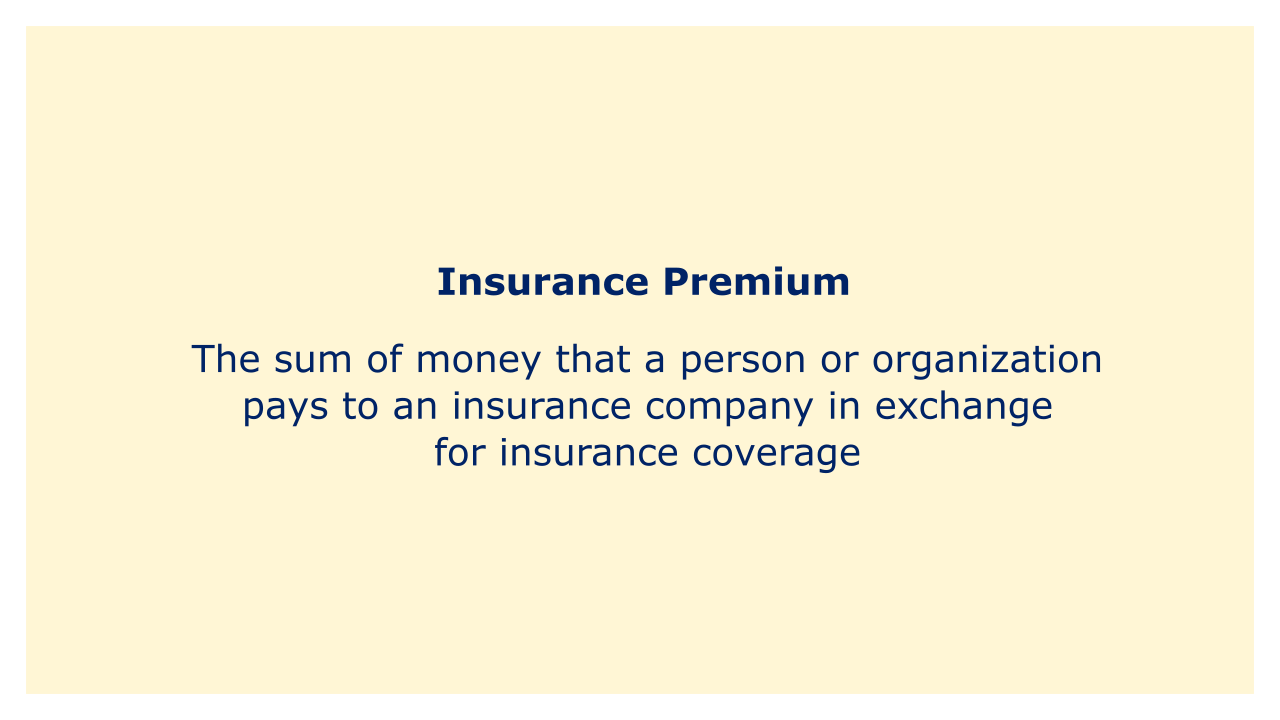 |
| Image: Moneybestpal.com |
The sum of money that a person or organization pays to an insurance company in exchange for insurance coverage is known as an insurance premium. The amount of the premium, which can be paid monthly, quarterly, or annually, is often determined by the perceived risk of the person or entity being covered.
The type and amount of coverage offered, the policyholder's age and health, the level of risk connected to the policyholder's occupation or activities, and the likelihood that the policyholder will make a claim are all factors that insurance companies consider when determining the premium rate for a specific policy.
A person insuring a high-performance sports vehicle, for instance, will probably pay a higher insurance premium than someone insuring a regular sedan because the sports car is more likely to be involved in accidents or sustain damage. In a similar vein, someone who has a history of health issues may have to pay a greater premium for health insurance than someone who is healthy.
As they provide the money needed to settle claims when policyholders experience losses or damage, insurance premiums are a crucial source of income for insurance firms. Individuals and organizations should carefully assess their insurance requirements and search around for the best premium prices to make sure they are receiving appropriate coverage at a fair price.
